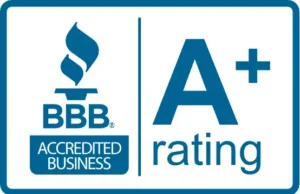Currently, Synchrony offers low monthly payments and many financing options. You can have your home repaired now and pay later with one of Synchrony's six monthly payment programs.
Highlands, located in Harris County, Texas, faces unique challenges when it comes to flood management and home protection. As a community situated in a flood-prone area near the San Jacinto River and Houston Ship Channel, residents often consider home elevation as a crucial strategy to protect their properties from recurring flood damage. This process involves raising the entire structure above the expected flood levels, providing long-term protection and peace of mind for homeowners.
Harris County has experienced numerous significant flooding events over the years, making home elevation a practical necessity rather than just an option. The area’s flat topography and proximity to multiple waterways create conditions where water can accumulate quickly during heavy rainfall or storm surge events. Furthermore, changing weather patterns and urban development have increased the frequency and severity of flooding in the region.
Home elevation in Highlands offers several compelling benefits to residential property owners. Most notably, elevated homes typically experience reduced flood insurance premiums through the National Flood Insurance Program. Additionally, raising a home above base flood elevation significantly decreases the likelihood of flood damage, protecting valuable belongings and reducing the emotional stress associated with repeated flooding events.
The elevation process begins with a thorough assessment of the property and existing foundation. Professional contractors evaluate the home’s structural integrity, soil conditions, and local building codes to determine the most appropriate elevation method. In many cases, the existing foundation must be modified or completely replaced to accommodate the new height requirements.
During the elevation process, the home is carefully lifted using hydraulic jacks and steel beams. This delicate operation requires experienced professionals who understand the complexities of moving an entire residential structure safely. Once the home reaches the desired elevation, new foundation elements are installed to provide permanent support.
When considering home elevation in Highlands, Harris County residents should work with established contractors who specialize in residential foundation services. Allied Foundation focuses exclusively on residential projects, ensuring that homeowners receive specialized expertise tailored to their specific needs. This residential focus allows for better understanding of local building codes, insurance requirements, and the unique challenges faced by homeowners in flood-prone areas.
The investment in home elevation represents a significant financial commitment, but for many Highlands residents, it provides invaluable protection against future flood damage while potentially increasing property value and reducing long-term insurance costs.
Proudly Serving Highlands for over 40 years!


